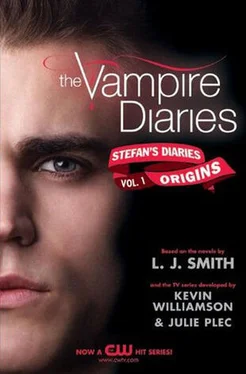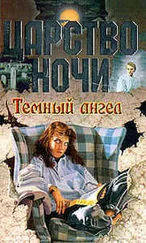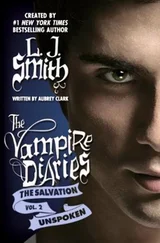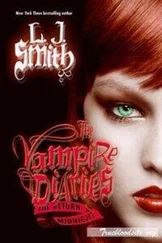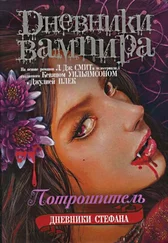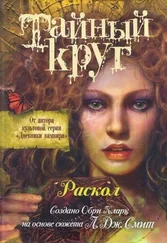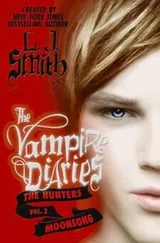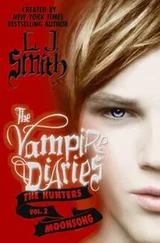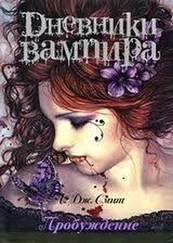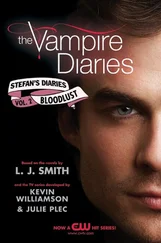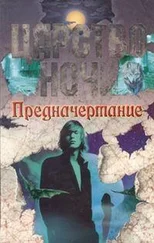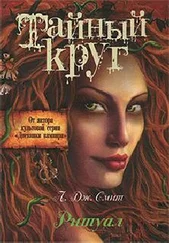PREFACE
They call it the witching hour, that time in the middle of the night when no humans are awake, when creatures of the night can hear them breathing, smell their blood, watch their dreams unfold. It’s the time when the world is ours, when we can hunt, kill, protect.
It’s the time when I’m most eager to feed. But I must hold back. Because by holding back, by hunting only those animals whose blood never quickens with desire, whose hearts don’t pound with joy, whose yearnings don’t make them dream, I can control my destiny. I can hold back from the dark side. I can control my Power.
Which is why, on a night when I can smell blood all around me, when I know that in an instant I could connect to the Power I’ve been resisting for so long and will resist for all eternity, I need to write. Through writing down my history, seeing variousscenes and years connect to each other, like beads on an everlasting chain, I can stay connected to who I was back when I was a human and the only blood I ever heard rushing in my ears and felt pounding in my heart was my own….
1
The day my life changed started out like any other. It was a hot August afternoon in 1864, the weather so oppressive that even the flies stopped swarming around the barn. The servants’ children, who usually played wild games and shrieked as they ran from one chore to another, were silent.
The air was still, as if holding off on a long-awaited thunderstorm. I’d planned to spend a few hours riding my horse, Mezzanotte, into the cool forest on the edge of Veritas Estate—my family home.
I’d packed my satchel with a book and was intent on simply escaping.
That was what I’d been doing most days that summer. I was seventeen and restless, ready neither to join the war alongside my brother nor to have Father teach me to run the estate. Every afternoon, I had the same hope: that several hours of solitude would help me figure out who I was and what I wanted to become. My time at the Boys Academy had ended last spring, and Father had made me hold off on enrolling at the University of Virginia until the war had ended. Since then, I’d been curiously stuck in the in-between. I was no longer a boy, not quite a man, and utterly unsure of what to do with myself.
The worst part was that I had no one to talk to.
Damon, my brother, was with General Groom’s army down in Atlanta, most of my boyhood friends were either about to be betrothed or on faraway battlefields themselves, and Father was constantly in his study.
“Gonna be a hot one!” our overseer, Robert, yelled from the edge of the barn, where he was watching two stable boys attempt to bridle one of the horses Father had purchased at auction last week.
“Yep,” I grunted. That was another problem: While I yearned for someone to talk with, when presented with a conversation partner, I was never content. What I desperately wanted was to meet someone who could understand me, who could discuss real things like books and life, not just the weather. Robert was nice enough and one of Father’s most trusted advisers, but he was so loud and brash that even a ten-minute conversation could leave me exhausted.
“Heard the latest?” Robert asked, abandoning the horse to walk toward me. I groaned inwardly.
I shook my head. “Haven’t been reading the papers. What’s General Groom doing now?” I asked, even though conversation about the war always left me uneasy.
Robert shielded his eyes from the sun as he shook his head. “No, not the war. The animal attacks. The folks over at Griffin’s lost five chickens. All with gashes in their necks.”
I paused mid-step, the hairs on the back of my neck rising on end. All summer, reports of strange animal attacks had emerged from neighboring plantations. Usually, the animals were small, mostly chickens or geese, but in the past few weeks someone—probably Robert, after four or five tumblers of whiskey—had begun a rumor that the attacks were the work of demons. I didn’t believe that, but it was one more reminder that the world wasn’t the same one I’d grown up in.
Everything was changing, whether I wanted it to or not.
“Could have been a stray dog that killed them,” I told Robert with an impatient wave of my hand, parroting the words I’d overheard Father say to Robert last week. A breeze picked up, causing the horses to stomp their feet nervously.
“Well, then, I hope one of those stray dogs doesn’t find you when you’re out riding alone like you do every day.” With that, Robert strode off toward the pasture.
I walked into the cool, dark stable. The steady rhythm of the breathing and snorting of the horses relaxed me instantly. I plucked Mezzanotte’s brush from the wall and began combing through her smooth, coal-black coat. She whinnied in appreciation.
Just then, the stable door creaked open, and Father stepped in. A tall man, Father carried himself with so much force and presence that he easily intimidated those who crossed his path. His face was lined with wrinkles that only added to his authority, and he wore a formal morning coat, despite the heat.
“Stefan?” Father called, glancing around the stalls. Even though he’d lived at Veritas for years, he’d probably only been in the stable a few times, preferring to have his horses prepared and brought straight to the door.
I ducked out of Mezzanotte’s stall.
Father picked his way toward the back of the stable. His eyes flicked over me, and I felt suddenly embarrassed for him to see me caked in sweat and dirt. “We have stable boys for a reason, son.”
“I know,” I said, feeling as though I’d disappointed him.
“There’s a time and a place for having fun with horses. But then there’s the point when it’s time for a boy to stop playing and become a man.” Father hit Mezzanotte on the flanks, hard. She snorted and took a step back.
I clenched my jaw, waiting for him to tell me about how, when he was my age, he’d moved to Virginia from Italy with only the clothes on his back. How he’d fought and bargained to build a tiny, one-acre plot of land into what was now the two hundred acres of Veritas Estate. How he’d named it that because veritas was Latin for truth, because he’d learned that as long as a man searched for truth and fought deception, he didn’t need anything else in life.
Father leaned against the door of the stall.
“Rosalyn Cartwright just celebrated her sixteenth birthday. She’s looking for a husband.”
“Rosalyn Cartwright?” I repeated. When we were twelve, Rosalyn had gone to a finishing school outside of Richmond, and I hadn’t seen her in ages. She was a nondescript girl with mousy blond hair and brown eyes; in every memory I held of her, she wore a brown dress. She’d never been sunny and laughing, like Clementine Haverford, or flirty and feisty, like Amelia Hawke, or whip-smart and mischievous, like Sarah Brennan. She was simply a shadow in the background, content to trail along on all our childhood adventures but never to lead them.
“Yes. Rosalyn Cartwright.” Father gave me one of his rare smiles, with the corners of his lips turned so slightly upward, one would think he was sneering if one did not know him well. “Her father and I have been talking, and it seems the ideal union. She’s always been quite fond of you, Stefan.”
“I don’t know if Rosalyn Cartwright and I are a match,” I mumbled, feeling as though the cool walls of the stable were closing in on me. Of course Father and Mr. Cartwright had been talking. Mr. Cartwright owned the bank in town; if Father had an alliance with him, it would be easy to expand Veritas even further. And if they’d been talking, it was as good as done that Rosalyn and I were to be man and wife.
Читать дальше
